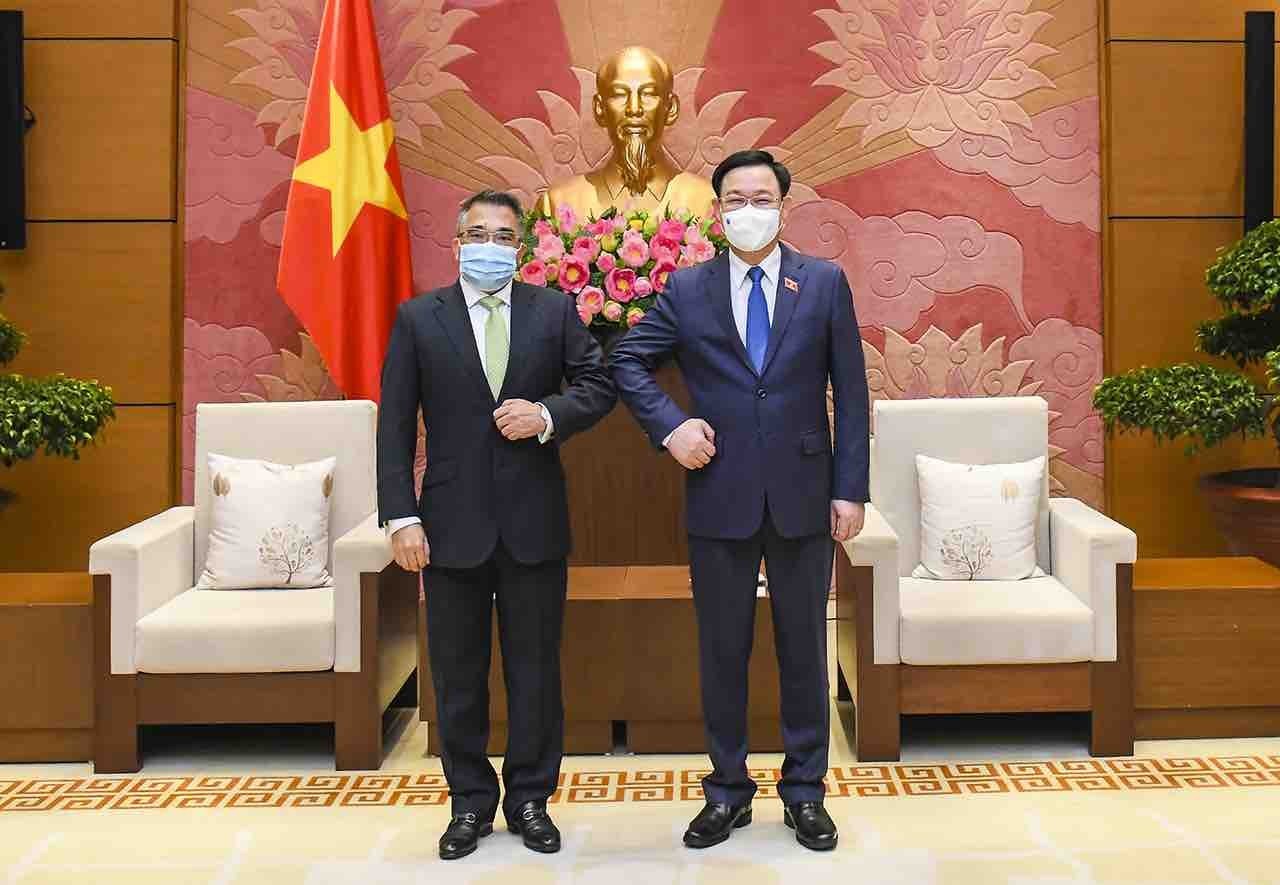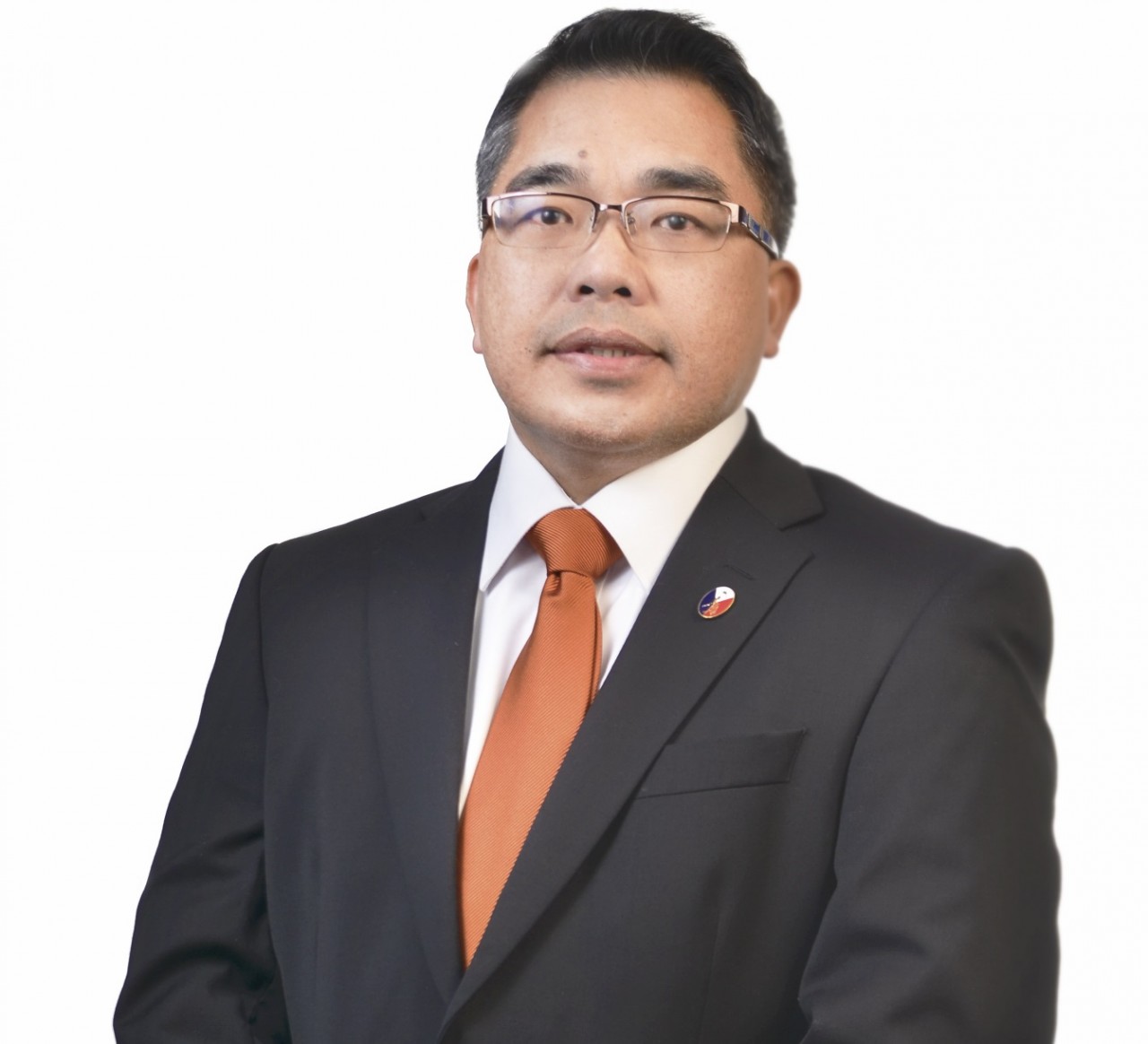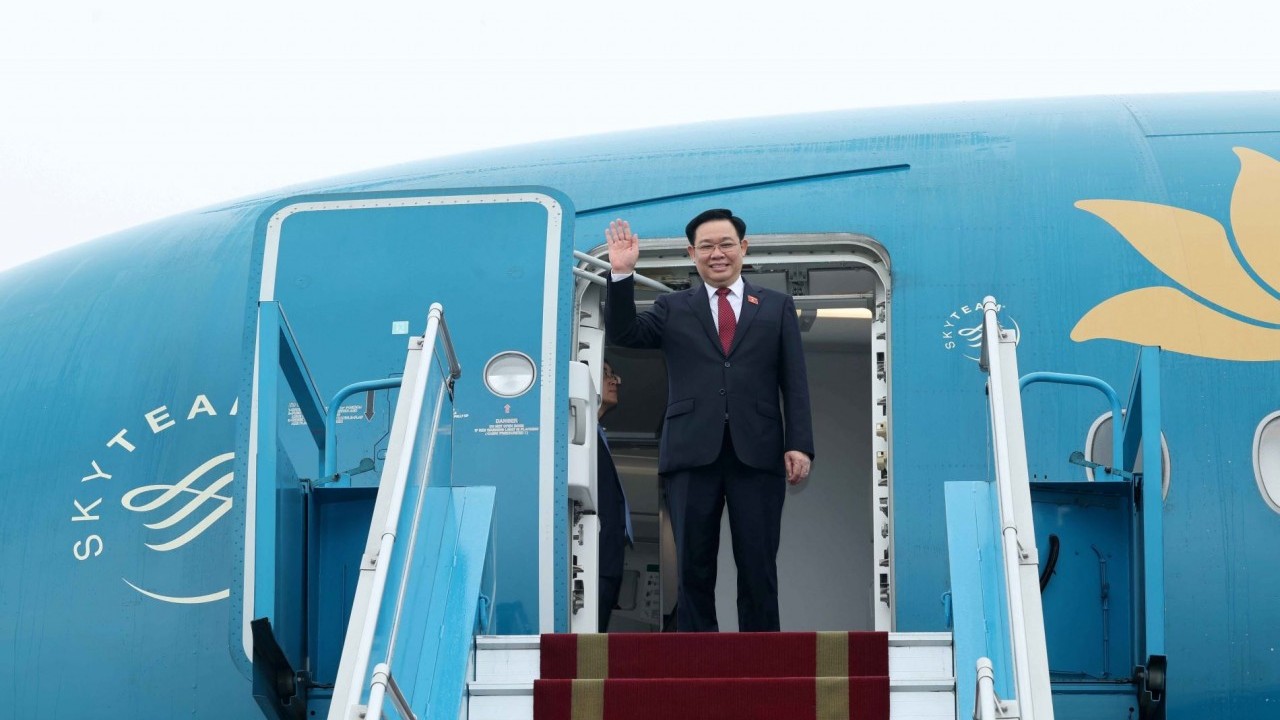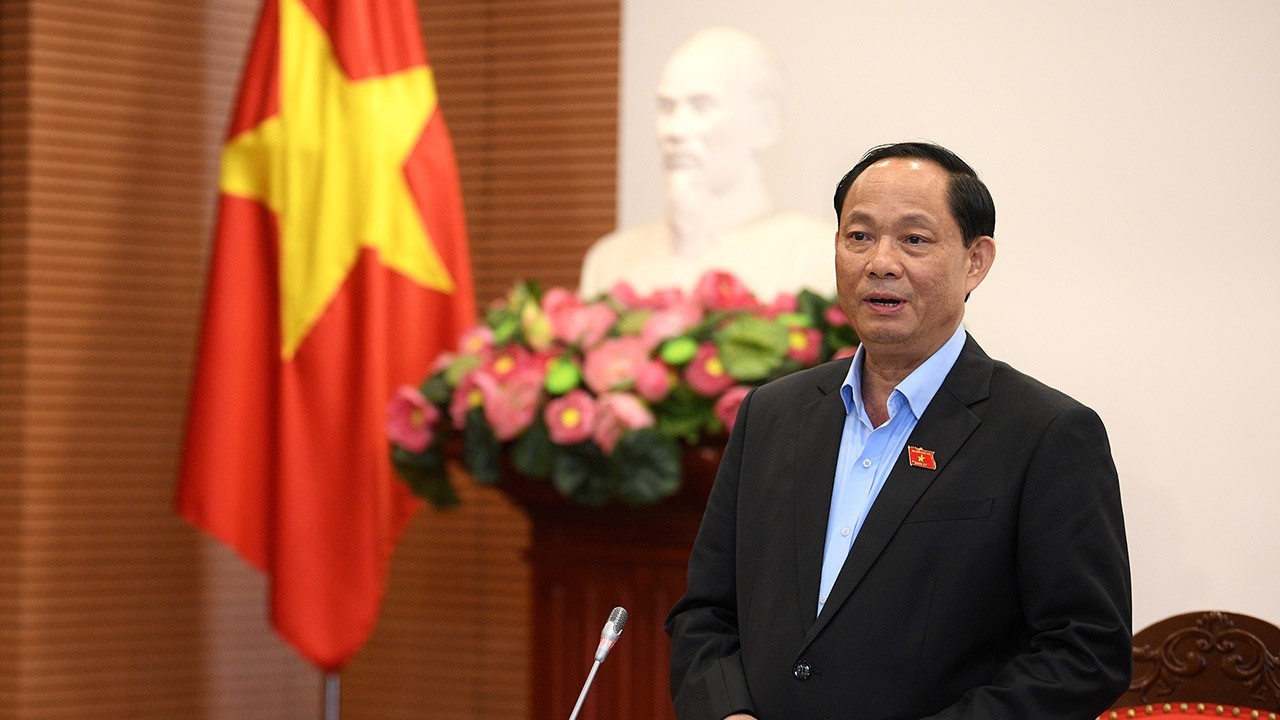
Philippine Ambassador: Philippines-Vietnam can be further deepened
Latest
 |
| National Assembly Chairman Vuong Dinh Hue (R) poses for a photo with Philippine Ambassador Meynardo Los Banos Montealegre. (Source: quochoi.vn) |
Could you please share your expectations of the Vietnamese National Assembly Chairman Vuong Dinh Hue’s official visit to the Philippines?
We very much welcome the official visit of National Assembly Chairman Vuong Dinh Hue to the Philippines. His visit comes at an opportune time following the opening up of the borders of the Philippines and Vietnam and the revival of activities of both countries after the pandemic.
Chairman Hue will be the third Vietnamese National Assembly Chairman to officially visit the Philippines. The first was in 1993 and the last was in 2003 or almost two decades ago.
 |
| Philippines's Ambassador to Vietnam Meynardo Los Banos Montealegre (Photo: Philippines's Embassy in Vietnam) |
We are confident this visit will deepen the cooperation of the Philippines and Vietnam on mutually beneficial areas such as economic integration, security and peace and order, climate resiliency and disaster cooperation, food security and agriculture, health and science cooperation, among others.
In your opinion, what should the two countries do to further promote parliamentary cooperation?
Formal and informal dialogues between the leaders and officials of both sides are always important. Parliaments from both countries can also consider holding joint workshops and capacity building for the officials and staff of both parliaments and the Philippine Embassy can help facilitate these future engagements.
Close coordination between Philippines and Vietnam parliament officials in multilateral parliamentary forums such as the Inter-Parliamentary Union (IPU), the ASEAN Inter-parliamentary Assembly (AIPA), and the Asia-Pacific Parliamentary Forum (APPF) also help ensure continuous dialogue and friendly relations.
How do you evaluate the efforts to fulfill the Action Plan on implementing the Vietnam-Philippines Strategic Partnership for the period 2019-2024?
There remains a common effort to implement the Vietnam-Philippines Action Plan for the Implementation of the Strategic Partnership for 2019-2024. For the past two years, both sides’ efforts were limited due to prioritization of resources and focus on addressing the pandemic.
Towards the second half of 2022, there has been a revival of bilateral activities in various forums. The visit of Philippine Senator Ronald Dela Rosa to Hanoi last month and this visit of Chairman Hue to Manila are actual manifestations of the political cooperation through inter-parliamentary activities that have been specified in the Action Plan.
The Philippines attended several ASEAN-related conferences in Vietnam and we have also seen people-to-people engagements such as the visit of our students from the Philippines’ National Defense College here in Hanoi, the participation of the Philippines in the recently concluded OECD Southeast Asia Regional Program in support of Vietnam’s co-chairmanship. There are also various socio-economic and science-related meetings here in Vietnam which the Philippines has actively engaged in, including ministerial-level meetings and several trade and cultural exhibitions. All of these activities have the objective of strengthening our relations with Vietnam cognizant of its efforts to resume diplomatic, economic and socio-cultural engagements in the region.
What are your assessments about the potentials of economic cooperation between the two countries in the coming time, towards recovery and sustainable development?
The potentials for economic cooperation between the Philippines and Vietnam are huge since both are two of the most vibrant economies in the Southeast Asian region. I think there is a healthy competition between both countries in terms of trade and investment, but overall, both sides have a lot to gain if economic cooperation will be sustained and expanded.
While there are existing mechanisms of cooperation, the relationship can be further deepened considering that both have common goals and face common challenges. This is why continuous dialogues between leaders and government officials need to be sustained because it is through these dialogues that we are able to sort out any concern and assess further areas of cooperation.
As a country with advantages in agriculture, what are your assessments of Vietnam’s role in food supply chains in the region and the world?
Vietnam is one of the top exporters of rice to the international market. It also has diversified agricultural products and its clout in the international market continues to increase. Vietnam, therefore, has a lot to offer to the region and to the international community.
In the current international context, how would the two countries coordinate at the multilateral cooperation level?
Both countries are very active in numerous multilateral cooperation mechanisms. As a fellow ASEAN country, the Philippines looks favorably towards Vietnam and there are continuous formal and informal mechanisms of coordination between the two countries.












